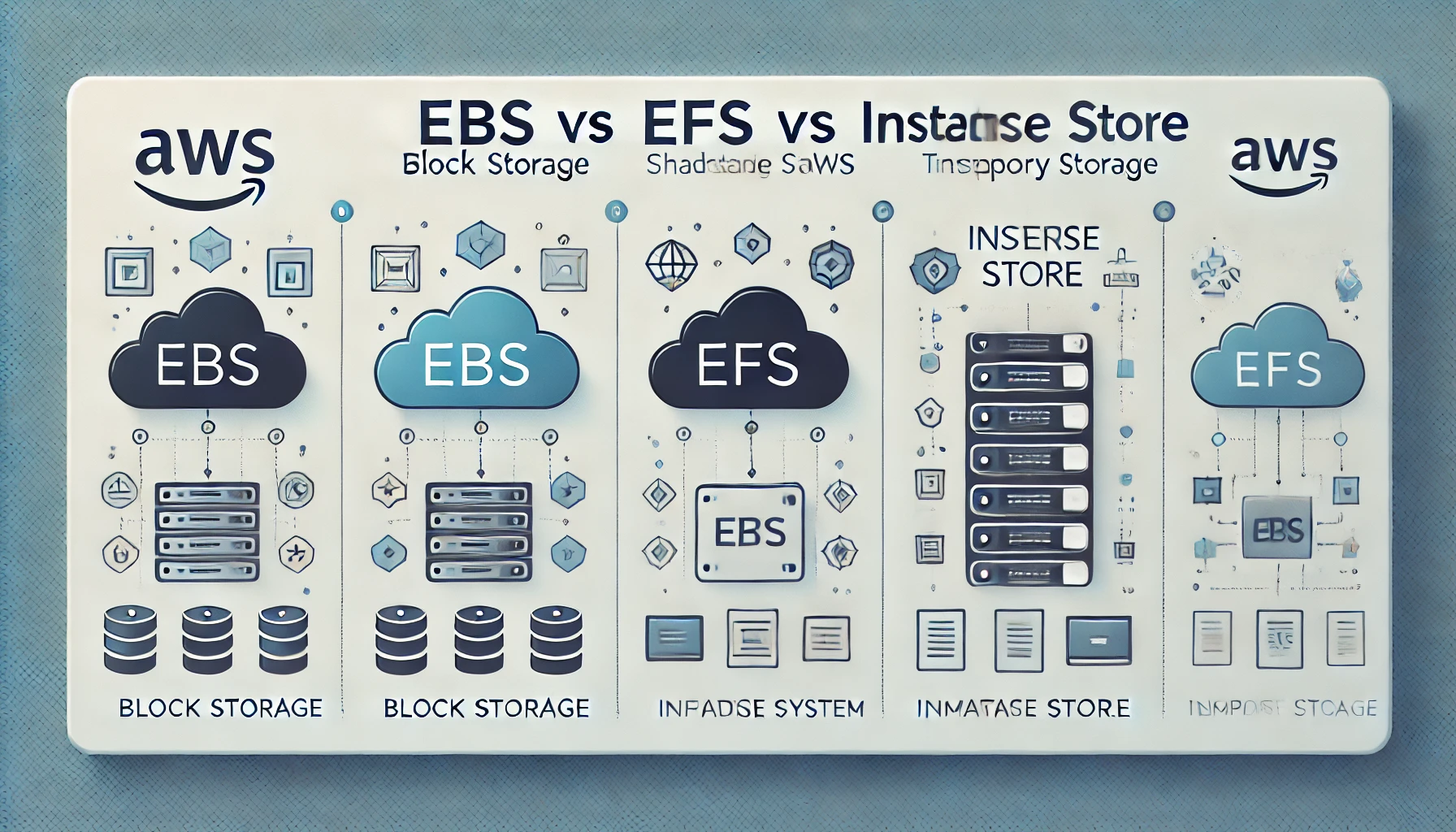EBS vs EFS vs Instance Store
 Gedion Daniel
Gedion Daniel2 min read

When choosing between EBS, EFS, and Instance Store in AWS, it's essential to understand how each type of storage is unique. Here’s a quick comparison to help you decide:
| Feature | EBS (Elastic Block Store) | EFS (Elastic File System) | Instance Store |
| Type of Storage | Block-level | File-level | Local disk (attached directly) |
| Data Persistence | Yes (Data is persistent even if instance is stopped) | Yes (Data persists with automatic replication) | No (Data is lost if instance stops or is terminated) |
| Shared Access | No (Only one instance can access at a time) | Yes (Multiple instances can access the same data) | No (Only available to the instance it's attached to) |
| Ideal Use Case | Databases, applications needing fast I/O | Shared files for web servers, analytics, shared storage | Temporary data like cache, buffers, and logs |
| Scalability | Fixed size (requires resizing to scale) | Automatic scaling based on usage | Fixed size (defined by instance type) |
| Backup Options | Snapshots for backup and recovery | Automatic backups and data replication | None (data is temporary) |
| Performance | High IOPS, low latency for database tasks | Scalable, but not as high-speed as EBS | High speed for temporary use cases |
Summary
EBS is best for applications that need reliable, block-level storage with persistent data, such as databases.
EFS is ideal if you need a shared file system accessible by multiple instances, perfect for shared data storage across instances.
Instance Store offers temporary, high-speed storage directly connected to the instance, best for data that doesn’t need to persist after the instance stops.
0
Subscribe to my newsletter
Read articles from Gedion Daniel directly inside your inbox. Subscribe to the newsletter, and don't miss out.
ebsEFSAWSAWS Certified Solutions Architect Associateaws-cdkaws lambdaAWS Amplifyec2EC2 instanceec2 instance typesEFS Securityinstancestorage
Written by

Gedion Daniel
Gedion Daniel
I am a Software Developer from Italy.